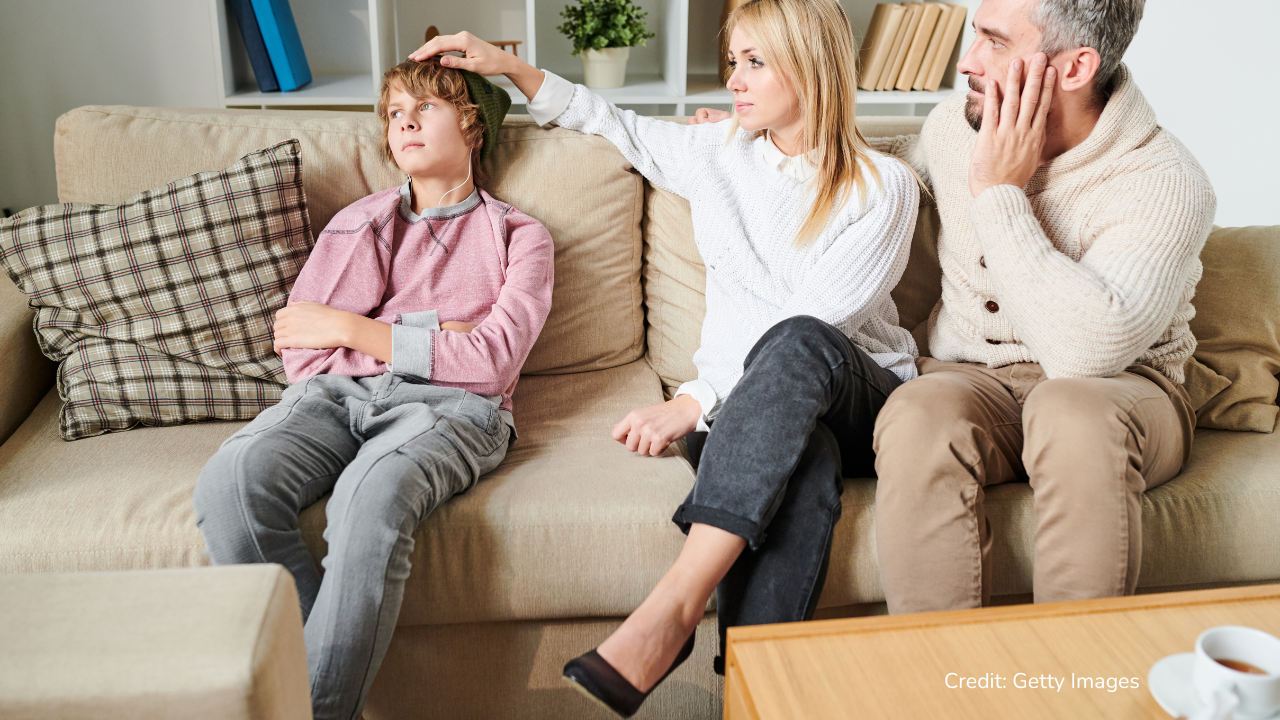Teen Friendships: How Peer Pressure Really Works—and What Parents Must Know

When your teen starts dressing, talking, or acting just like their friends, it’s normal to feel a wave of panic. Are they changing? Are they losing themselves? Are they being led down a dangerous path?
You’re not crazy for worrying. Peer influence is powerful—and real. But it’s not the monster we often fear. In this episode of Parenting Teens with Dr. Cam, Dr. Cam interviews Dr. Brett Larson, one of the world’s top experts on teen friendships, peer influence, and social development. With decades of research tracking thousands of teens globally, Dr. Larson shares surprising truths about why teens are drawn to certain friends, how influence actually works, and what parents can do to stay in the game without pushing their teen away.
1. Peer Pressure Isn’t Always a Bad Thing
When you hear “peer pressure,” your brain probably flashes to kids being pushed into drinking, vaping, or risky behavior. But Dr. Larson explains that peer influence is often positive—it encourages teens to be more polite, work harder in school, or stop unhealthy habits. Friends aren't always a liability. Many times, they’re a driving force for good decisions too.
2. Teens Choose Friends Who Are Already Like Them
Forget "opposites attract"—that’s Hollywood, not reality. Research shows teens naturally gravitate toward peers who share their interests, values, and even their challenges. If you don’t like your teen’s friends, it’s not about the friends—it’s a mirror into your teen’s own behaviors and struggles. Blaming the friend misses the bigger picture.
3. Trying to Break Up Friendships Usually Backfires
It’s tempting to ban a friend you don’t like, but Dr. Larson warns that meddling usually backfires. Kids whose parents intervene often lose social standing, become isolated, and ironically fall into even worse peer groups. Plus, it damages your relationship. When you attack their friend, you attack your teen.
4. Middle School Changes Everything
In elementary school, adults run the show. By middle school, teens enter a peer-driven world where friendships become the central force shaping identity. If parents don’t understand this shift, they risk becoming irrelevant. Peers aren’t replacing you because they hate you—they’re following the natural path of adolescent development.
5. Stay Relevant, Don't Fight for Control
Control is a losing game with teens. Influence, however, is still powerful—if you play it right. Dr. Larson explains that parents who keep positive, respectful relationships with their teens stay influential. Those who judge, criticize, or control lose access to their teen’s inner world. Stay connected, stay supportive, stay relevant.
6. How to Support Teens Struggling with Friendship
If your teen is lonely, don’t panic or push. Instead, help them find opportunities to meet others who share their passions. Support without pressure. Drive them to the chess club, the art class, the skate park—wherever their interests can lead to natural, meaningful connections.
7. Build an Adult-to-Adult Relationship with Your Teen
The ultimate goal? Transitioning from a parent-child dynamic to a mutual adult-adult relationship. Start by sharing your own mistakes. Let them see you as human, not perfect. The more you act like a trusted advisor instead of a dictator, the more your teen will come to you when it really matters.
Final Thoughts
Focus on Connection, Not Control
You can’t stop peer influence—and honestly, you don’t want to. But you can shape the way your teen processes it by being a trusted anchor in their increasingly complicated world. Your job isn’t to pick their friends or police their every move. It’s to build a relationship strong enough that when they need real guidance, they come to you.
The more we shift from fighting against peer pressure to working with our teens, the stronger and safer they’ll be.
🎧 Listen Now for More Tips
Want even more strategies for navigating peer influence and strengthening your parent-teen relationship? Tune in to the full episode of Parenting Teens with Dr. Cam featuring Dr. Brett Laursen:
Apple Podcasts | Spotify | iHeart | Audible | YouTube
📢 Loved This Episode? Let Us Know!
If this article helped you, please leave a quick rating and review! Your feedback helps more parents find the support they need.
❤️ Spread the Love!
Know a fellow parent struggling with their teen’s friendships? Share this post with them! Together, we can build a community of empowered parents and confident teens.
EPISODE CHAPTERS
00:00 Understanding Peer Influence in Teens
03:01 Peer Pressure Isn’t Always Negative
06:43 How Teens Choose Friends Based on Similarity
08:53 Losing Parental Control During Middle School
12:12 Supporting Lonely Teens Without Pressure
18:00 Helping Teens Manage Online Influence
27:12 Building Adult-to-Adult Relationships with Teens
36:00 Final Tips for Staying Relevant
ABOUT THE SHOW
The Parenting Teens with Dr. Cam Podcast is your go-to resource for navigating the challenges of raising teenagers. Hosted by Dr. Cam Caswell, an adolescent psychologist and certified parenting coach, this podcast offers practical parenting strategies, expert advice, and real-world insights to help you build a stronger relationship with your teen and support their emotional growth. Whether you’re struggling with teenage behavior or looking to improve communication, each episode provides actionable tips to make parenting teens easier and more rewarding.
#theteentranslator #drcamcaswell #parentingteens
